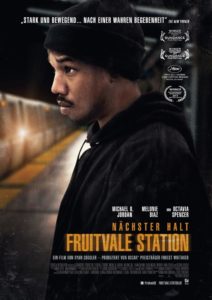Tim Story is a Black filmmaker who’s been around for a long time. Ten years ago, he helmed both of the much-maligned Fantastic Four movies. The studio behind these films, 20 Century Fox, has pulled Story’s version of the franchise out of circulation because a reboot is scheduled to come out in August. It took several years for Story to get back to doing feature film work, and his recent track record includes successful films such as Ride Along and Think Like a Man.
Studio interference negating cinematic vision and derailing careers is a huge problem for all directors, but for Black directors this problem becomes more exasperating. Diversity is a buzzword at the top of everyone’s wish list nowadays.
With a surplus of talented Black directors working right now and an abundance of film studios prospecting for directors, there’s a good reason for optimism. It’s becoming more commonplace for directors with a strong showing at the Sundance Film Festival or a buzzworthy independent film to helm $100 million movies as their next project. However, it’s a brave new world from independent cinema, where the director has more control.
Rick Famuyiwa was this year’s Sundance darling. His film, Dope, made big waves, and Hollywood is calling. He’s in the running to direct Marvel’s Black Panther. Ava DuVernay is also a hot commodity. Her star has ascended to astounding heights over the last year, and she is being sought to direct a number of future Marvel films including Black Panther and Captain Marvel. Both are veteran filmmakers; neither is an overnight success, and they are used 
A unique litmus test is fast approaching. Fruitvale Station director Ryan Coogler’s next film is Creed, a reboot of the Rocky film franchise. If the studio has given him the necessary room, Coogler will infuse new life into the film series. The great thing about Creed is though it’s not an indie film; it’s also not a behemoth of a movie.
Better directing jobs are not always bigger directing jobs. The only way diversity will happen on a realistic scale is if it’s worked on, and built up in a gradual way. This is the only way diversity transforms from a buzzword into something tangible.



